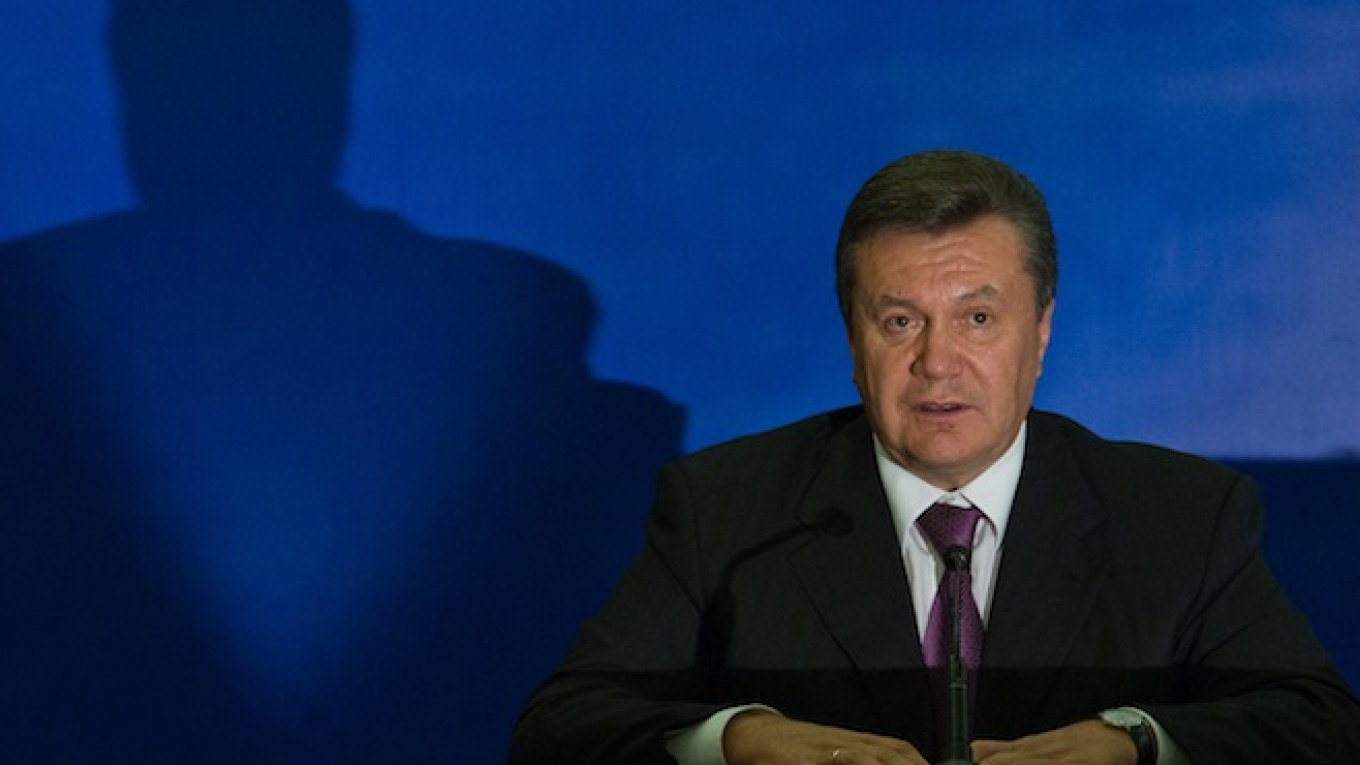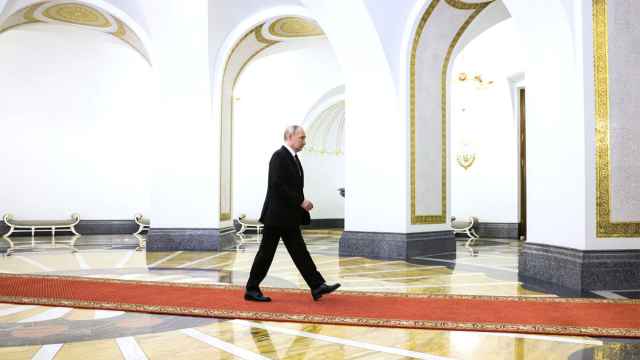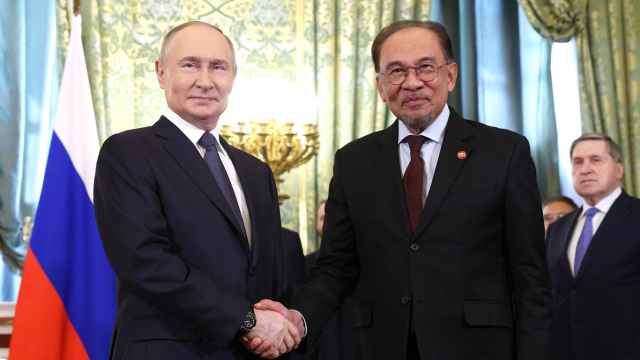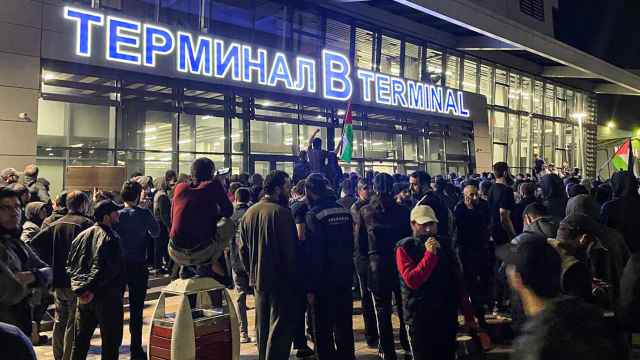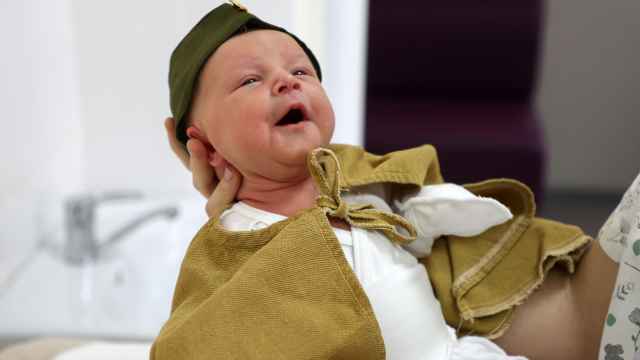Former Ukrainian President Viktor Yanukovych, who was ousted from power last year, has said in an interview with the BBC that he shoulders some responsibility for the shooting of protesters in Kiev's Maidan square in February 2014, and expressed hope he will one day be able to return to Ukraine.
Yanukovych sat down with BBC Newsnight's Gabriel Gatehouse to discuss, among other things, the events that led to his downfall, the annexation of Crimea, and the war in eastern Ukraine for an interview that was published online Tuesday. The Moscow Times rounds up five highlights from the interview.
1. Yanukovych was against opening fire on protesters
Yanukovych dismissed claims that he ordered the use of firearms against the Maidan protesters and said he was “categorically against it. “But the members of the security forces fulfilled their duties according to existing laws. They had the right to use weapons," he was quoted saying by the BBC.
Yanukovych also said he was partly to blame for the way events developed. “Probably I didn't do enough,” he said. More than 100 civilians died in the Maidan shootings.
2. Yanukovych is grateful to Putin for helping save his life
Discussing the role played by Russian President Vladimir Putin in his exit from Ukraine, Yanukovych expressed gratitude. “The fact that Vladimir Putin took that decision, on the recommendation of his special forces, that was his right and his business,” he told the BBC. “I am of course grateful to him for giving the order and helping my security to get me out and save my life.”
In October 2014, Putin admitted for the first time to members of the Valdai discussion club in Sochi that Russia helped Yanukovych flee Ukraine following the eruption of violent protests in the country, the BBC reported at the time.
3. Crimea is lost …
The former Ukrainian president also shared his thoughts on the annexation of Crimea by Russia in March 2014. “Of course it's a tragedy for the Ukrainian state. What happened there was very bad,” he said. Yanukovych, however, displayed caution when commenting on the possibility of Crimea's return to Ukraine. “Listen to me. What has happened, has already happened,” he told Gatehouse. “Today they talk about getting Crimea back. How? By war? We need another war?”
4. … but the Donbass should remain with Ukraine
At the same time, Yanukovych stated that the Donbass region, currently under the control of pro-Russia separatists, should remain part of Ukraine. According to the BBC, he urged the United States and the European Union to negotiate directly with the rebels in order to reach that goal.
The former president also seemed to blame the Maidan movement for the unfolding of the conflict in Ukraine. “I warned that they would not stop at Maidan; that they would go further. And they did go further,” he said. “In the last year and a half there has been war: in the last year and a half Ukraine lost Crimea and Donbas and thousands of human lives. They have broken up the country.”
5. The house was his own, but he is confused about the residence’s ostriches
Gatehouse also called on Yanukovych to answer allegations he embezzled state funds to maintain his expensive lifestyle while he was in office. “There's a house on the territory of the residence, 630 square meters, which belongs to Yanukovych,” he explained. “Everything else on that territory does not belong to me personally and never did belong to me.”
However, Yanukovych was unable to provide a convincing explanation regarding the presence of a group of ostriches that were found on the residence following his escape to Russia. After he seemed to imply that the animals simply happened to live on the property, he confirmed that he “supported” the animals and did not see anything wrong with it. “What am I supposed to do, go around with my eyes closed?” he asked.
Yanukovych, who showed some confusion regarding the legal ownership of the park the ostriches were kept in, subsequently noted that he was in any case too busy to ever visit the site. “I do love animals though,” he concluded.
A Message from The Moscow Times:
Dear readers,
We are facing unprecedented challenges. Russia's Prosecutor General's Office has designated The Moscow Times as an "undesirable" organization, criminalizing our work and putting our staff at risk of prosecution. This follows our earlier unjust labeling as a "foreign agent."
These actions are direct attempts to silence independent journalism in Russia. The authorities claim our work "discredits the decisions of the Russian leadership." We see things differently: we strive to provide accurate, unbiased reporting on Russia.
We, the journalists of The Moscow Times, refuse to be silenced. But to continue our work, we need your help.
Your support, no matter how small, makes a world of difference. If you can, please support us monthly starting from just $2. It's quick to set up, and every contribution makes a significant impact.
By supporting The Moscow Times, you're defending open, independent journalism in the face of repression. Thank you for standing with us.
Remind me later.


